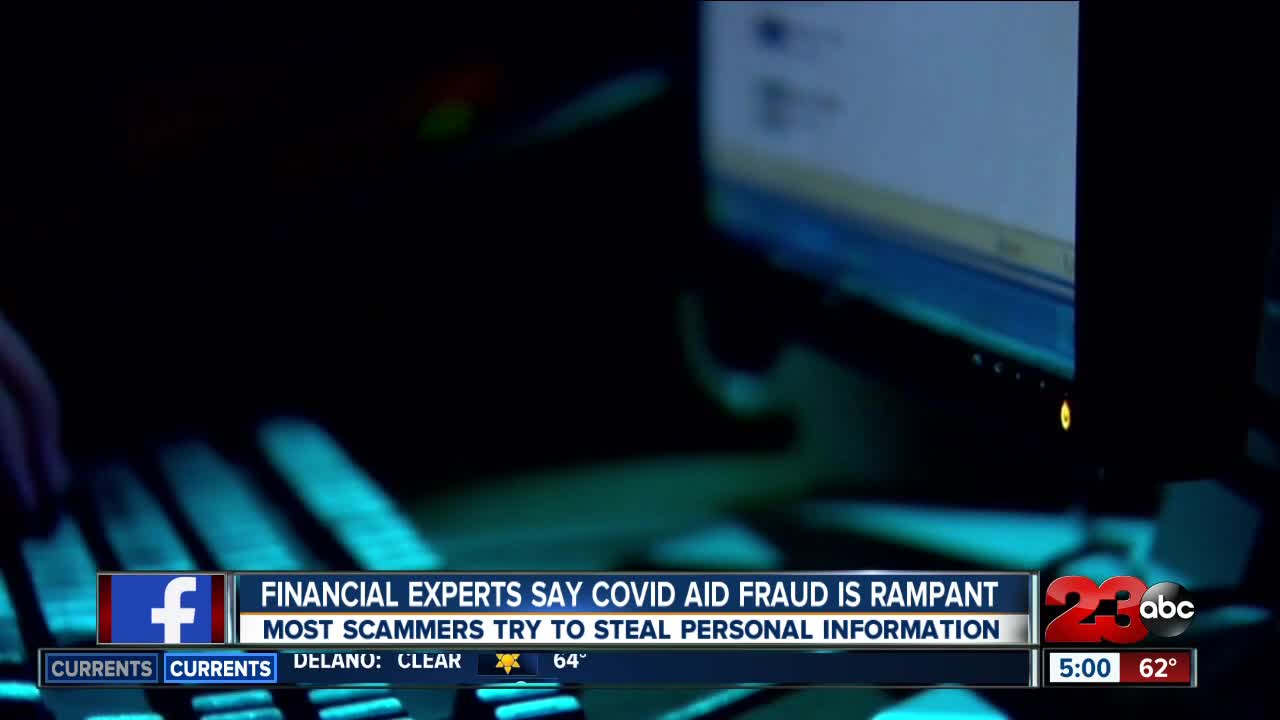BAKERSFIELD, Calif. — With news earlier this year that billions of dollars of California unemployment aid were given to fraudulent criminals, many ask if the same is possible with the current stimulus making its way through the Senate.
Earlier this year, the state confirmed scammers stole at least $11 billion in unemployment aid during the pandemic and officials say that number could grow as more aid is distributed by bills like the one in the Senate right now.
"It's a problem because you're funding cybercriminals," said Garro Ellis, Moneywise Wealth Management.
The California Employment Development Department earlier this year confirmed that nearly 10% of unemployment payments during the pandemic had been made to fraudsters and an additional 17% were made to potentially fraudulent claims. Altogether, that would be about $30 billion. Most of the fraudulent money paid in the name of workers without W-2s would be people who do things like Uber driving or other freelance work.
"California said 95% of most of the fraud happened in that realm," said Ellis.
Fraudulent unemployment claims are not a new thing, but as state officials dealt with the large task of responding to a global pandemic and processing an unprecedented number of unemployment claims, officials said opportunities opened up for criminals.
"All of these systems, especially government systems, are at max capacity for what they can do. And it's the best time to take advantage of something because it's the easiest way because the oversight can't handle everything," said Sawyer Snowden, senior project manager, ARRC Technology.
Sawyer Snowden is with local cybersecurity company ARRC Technology, and he said the most common issue their clients face is scammers trying to steal personal information. Fraudsters typically target people by sending emails or making phone calls that appear to be from government officials but aren't. That's why it's critical to watch who you send your information to.
"Little do you know you just gave it to some actor, or bad entity on the internet, who took your information to file a fraudulent EDD claim or something along those lines," said Snowden.
ARRC is holding a free webinar about web safety on Thursday, March 3. For details, visit their Facebook page.
The EDD estimates that new security protections put into place last fall, coupled with existing protective measures, prevented up to $60 billion in fraudulent payments. Still, the experts at Moneywise saying more could be done.
"This is happening in rampant numbers, so Kern County, the world, needs to know that this activity has picked up 20-fold," said Ellis.
The state says it processed as many claims within the first eight weeks of the pandemic shut down as it did during all of 2010, the worst full year of the great recession. And the trouble isn't over. According to the latest EDD data, over three and a half million Californians have collected unemployment benefits in the last month alone.














